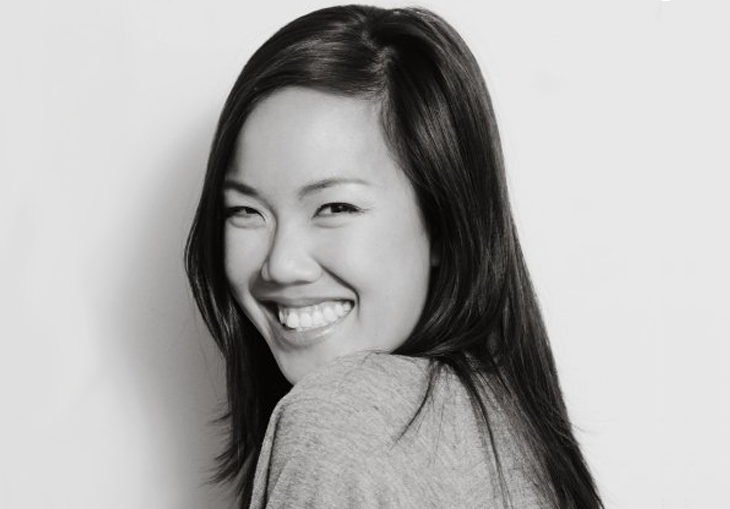At Voice Squad we celebrate a range of voices from across the globe. As such, we’ve invited a few of our artists in the coming weeks to discuss topics on authenticity and diversity within the voice over world, and share their own experiences from working within the industry. This week Vera Chok joins us to answer some of our questions on authenticity and the "Asian voice", whilst raising a few questions of her own.
---
Hi, I’m Vera. I’m ethnically Chinese and I grew up in Malaysia. I’m an actor and a writer and wrote the chapter, Yellow, in 2016’s surprise best-selling, award-winning, The Good Immigrant, a collection of essays by people of colour exploring what it means to live in the UK today. Immigrants (and any other marginalised peoples) have an awareness of whether or not we belong and what we need to do if we want to. Recent voice jobs have reminded me to consider the complications surrounding the concept of “authenticity”.
What constitutes an authentic voice?
In terms of voice work, I get called in to do Malay language jobs (though I am not ethnically Malay), Asian-accented English (“Do a general Asian accent. No one will know the difference”), and an international English (“We want her to sound foreign/exciting”). I understand that most clients request an authentic voice, one that is “native” or where the language in question is their “mother tongue”. My natural accent has changed throughout my life - I started with colonial British in Malaysia, developed American English in England and speak with a Malaysian accent for fun. I’ve received coaching in Beijing-accented Chinese and Chinese-American for acting jobs. Most Chinese and Chinese-looking actors I know make up a generalised, Chinese-sounding “Asian” accent when they are cast to play Chinese or Asian characters. (This is unless, of course, they are actually from China.) Furthermore, a Beijing-born Chinese person will speak English (or Mandarin) with a hugely different accent compared to someone Singaporean born or a British born. If Jane is racially Chinese, doesn’t speak any Chinese languages, grew up in Bradford, and isn’t familiar with a Chinese accent, should she be hired over Janette, who is white British, has a degree in Chinese and has lived in Beijing? Whose is the authentic voice?
What is an Asian voice?
The UK is unusual in being one of the few places where the word “Asian” primarily refers to folk from South Asia. There are 48 countries classified as Asian and the UK media ignores huge swathes of the continent - notably, South East Asia where the British empire was a colonial power - and conflates their disparate languages and cultures. In the UK, “Asian” seems to mean “looks Indian” and East Asian refers to “Chinese-looking folk”. Generalisation has serious repercussions when it comes to hate crime. Black British stand at 1.9m and are not, contrary to popular belief, the largest ethnic group. According to the 2011 UK Census, there are 3m+ British South Asians, 1.3m+ Chinese and “Other Asians”. Should UK media represent Britain’s racial mix “authentically”? In the British made Doctor Who Christmas special, multicultural New York contained only two black men. Eastenders has never had an East Asian family. Kubo and the Two Strings, an animation set in Japan, starred the voices of Charlize Theron and Matthew McConaughey. Do these names sell more tickets? Do these names make the film better?
What is a British voice?
Why do fully integrated Asians and people of colour get asked to ditch their British accents and put on a foreign one? A non-Chinese director once told me that I wasn’t playing a character “Chinese enough” indicating that they had a viewpoint on what a Chinese person should be like. In another instance, a non-black sound recordist laughingly told me that “Of course” all black British actors can do an “urban” accent and they shouldn’t pretend that they can’t or complain that they are asked to do it. Trevor McDonald OBE, ITN’s first black newscaster, provoked an outcry when he started out. Despite his famously refined accent people weren’t convinced a black man should be allowed to do such an “English” job. If people of colour can sound indistinguishable from white voice actors, are we hiring based on longstanding bias? Do we need to play out the establishment's idea of our ethnicity in order to have a seat at the table?
What about voice work?
In voice work, the audience doesn't see the voice so do different rules apply? Surely one hires the best actors? Yes, but only if the playing field is level. Actors of colour, and any marginalised group across the industries, do not have access to similar training and job opportunities are less solid hires than experienced actors. Charlize Theron is absolutely wonderful in Kubo but if we don’t hire Asians to play Asians, we’ll never know if there is an Asian Charlize Theron. Heck, if we don’t ever hire Asians to play regular people, we’ll never know if there is an Asian Judi Dench or Asian Ian McKellen. In business terms, we’re ignoring both our resources and our market.
Racial bias plays out every single day in the UK and globally, usually unintentionally. The thing is if you don’t belong to a marginalised group having your identity constantly questioned or negated isn’t something one naturally thinks of. What can voice work do to shift our ideas of authenticity?
---
Discussion with Vera Chok.
Questions from Voice Squad as headings.


